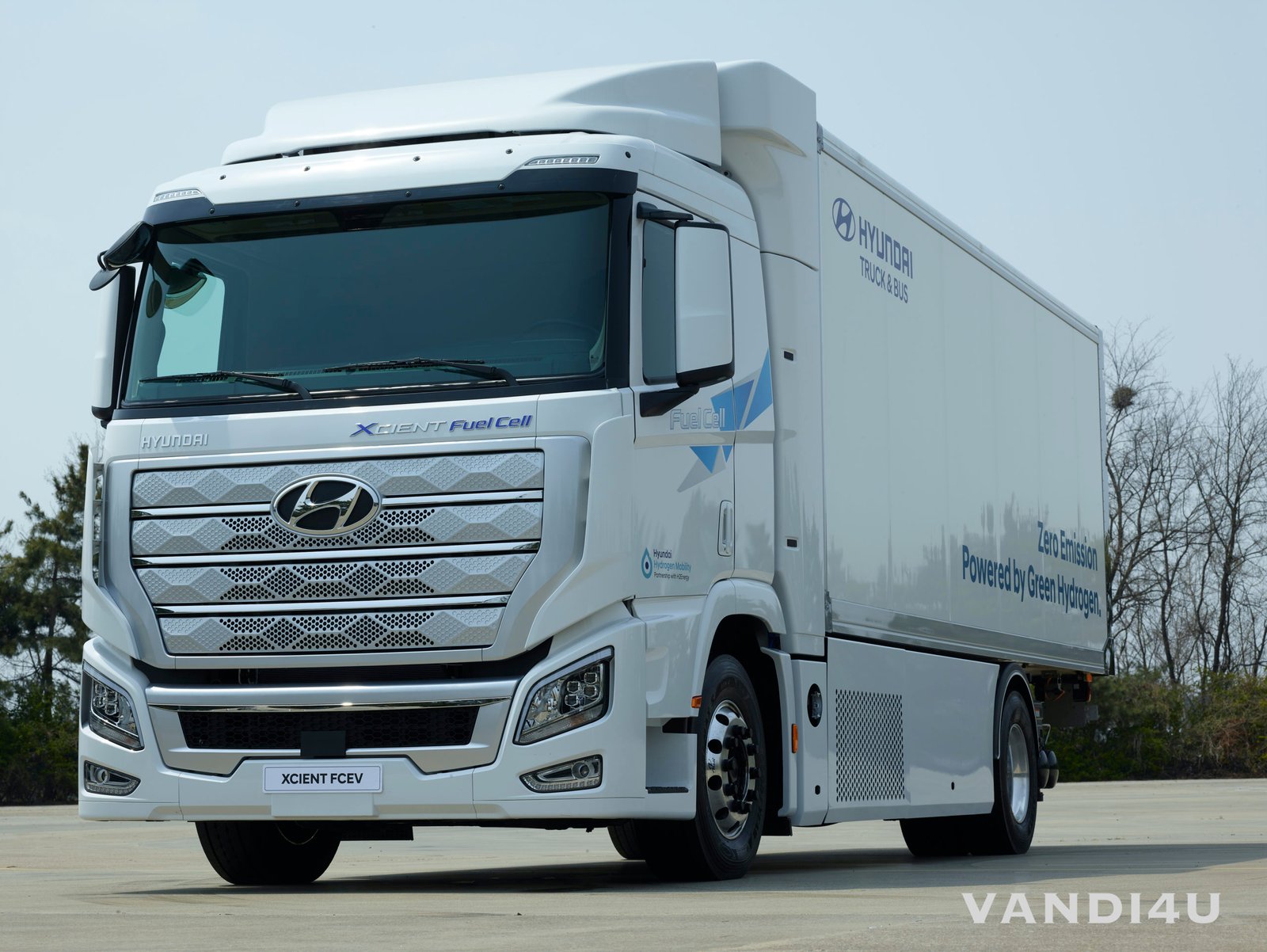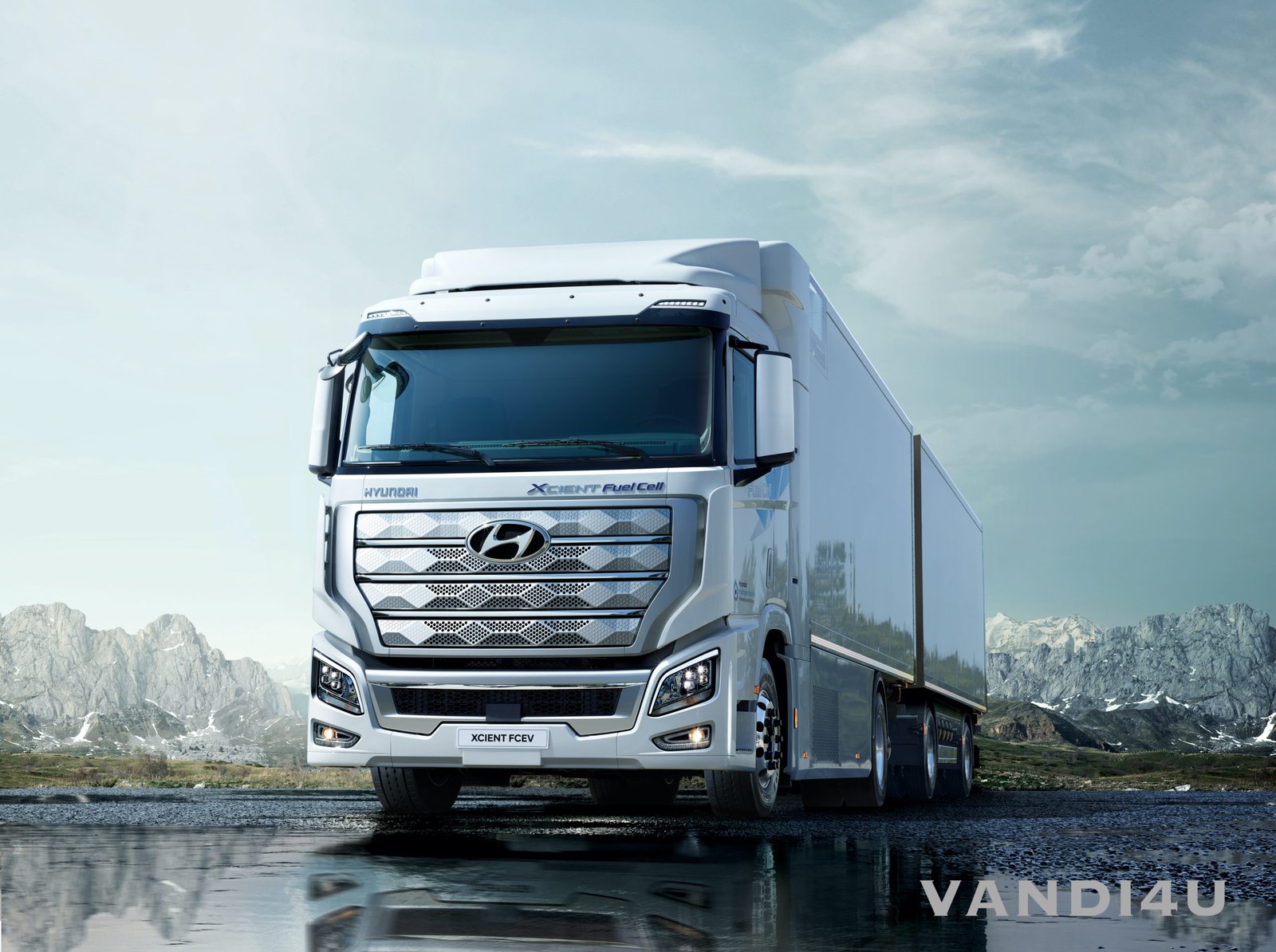Hyundai Motor Company today shipped the first 10 units of the Hyundai XCIENT Fuel Cell, the world’s first mass-produced fuel cell heavy-duty truck, to Switzerland. The company plans to ship a total of 50 XCIENT Fuel Cells to Switzerland this year, with handover to commercial fleet customers starting in September. Here the Vandi4u’s Top 5 things you need to know about the Hyundai Xcient fuel cell truck.
1. World’s first heavy duty fuel cell truck
Hyundai Xcient is the world’s first mass-produced fuel cell heavy-duty truck. By 2025, Hyundai plans to roll out a total of 1,600 XCIENT Fuel Cell trucks. Hyundai will roll out 50 trucks this year.
2. Can travel 400 km in a single charge

In a single charge the Hyundai Xcient heavy duty fuel truck can cover a distance of approximately 400 km. With an optimal balance between the specific requirements from the potential commercial fleet customers and the charging infrastructure in Switzerland. Refuelling time for each truck takes approximately 8 to 20 minutes.
3. Powered by a 190 kW hydrogen fuel cell
The Xcient fuel cell heavy duty truck is powered by 190 kW hydrogen fuel cell system with dual 95-kW fuel cell stacks. Seven large hydrogen tanks offer a combined storage capacity of around 32.09 kg of hydrogen. The hydrogen truck can travel at a top speed of 85 km/h. In terms of safety, the Hyundai Xcient gets Front Collision-avoidance Assist (FCA), Smart Cruise Control (SCC), ABS with Vehicle Dynamic Control (VDC) and Lane Departure Warning (LDW) as standard feature. Driver airbags comes as an optional feature.
4. Suitable for logistics and commercial shipping
Due its long range and short refuelling time. The new Hyundai Xcient heavy duty fuel cell truck is suitable for logistics and commercial shipping fleets. The dual-mounted fuel cell system provides enough energy to drive the heavy-duty trucks up and down the mountainous terrain in the region.
5. Hyundai aims global markets

Hyundai Motor is also developing a long-distance tractor unit capable of traveling 1,000 kilometers on a single charge equipped with an enhanced fuel cell system with high durability and power, aimed at global markets like North America and Europe. The one of the main reasons for Hyundai to chose Switzerland as its starting point is the Swiss LSVA road tax on commercial vehicles, which does not apply for zero-emission trucks. That nearly equalizes the hauling costs per kilometer of the fuel cell truck compared to a regular diesel truck.


